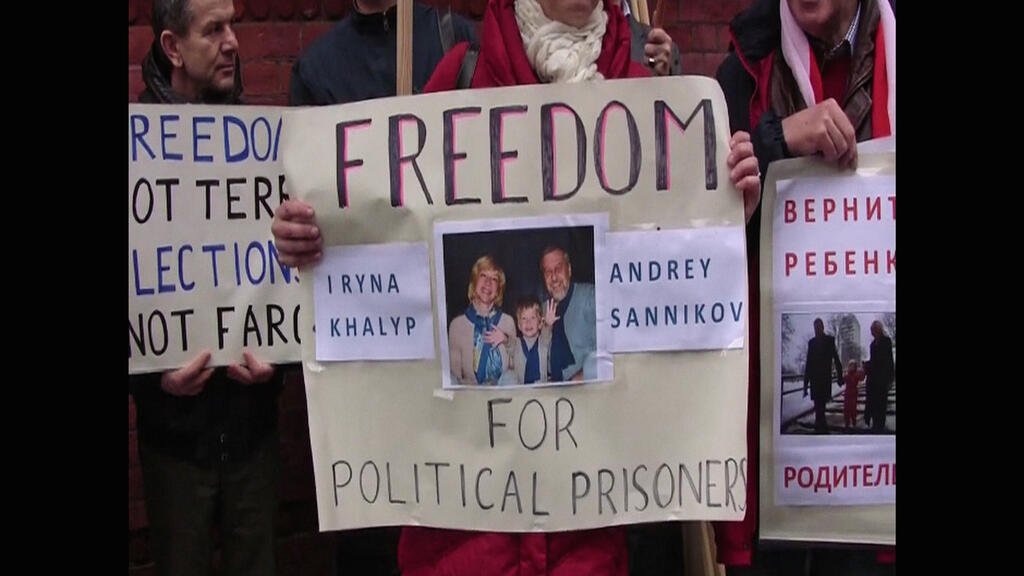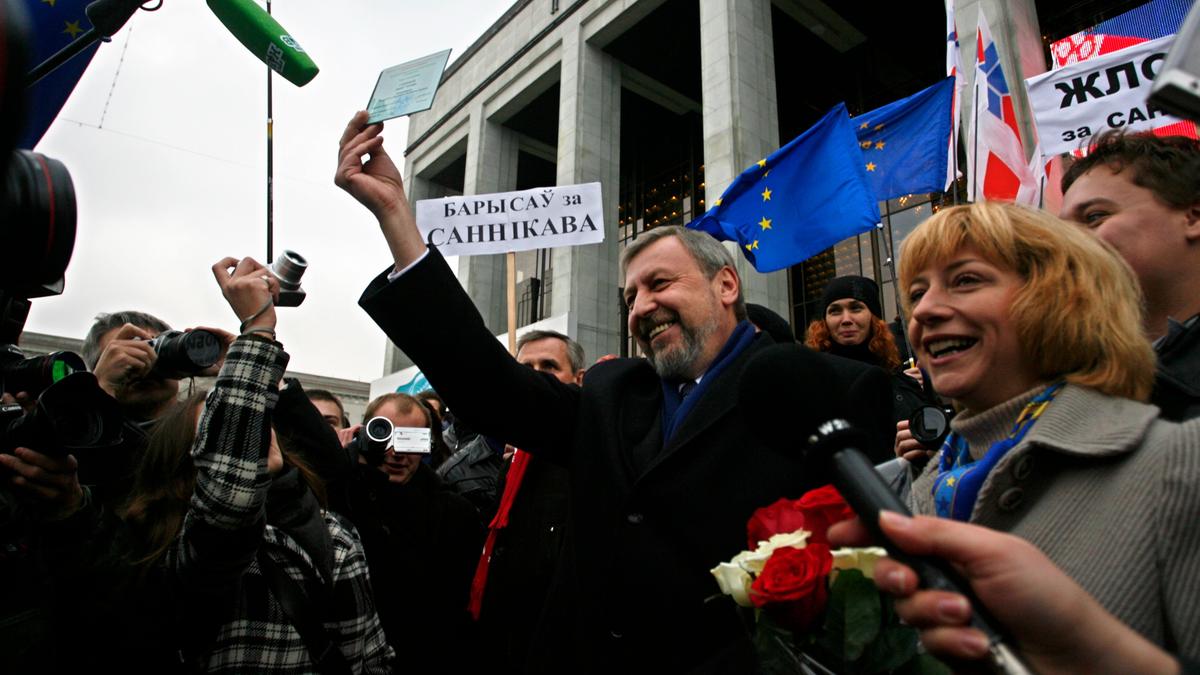Belarusian diplomat turned implacable regime opponent Andrey Sannikov’s struggle to maintain a normal life amid an unequal battle against the dictatorship of Alexander Lukashenko provides the subject matter to This Kind of Hope, an unflinching documentary by Pavel Sichek that hit German theatres on 1 February.
Novaya Gazeta Europe reporter Iryna Khalip is one of the people featured in This Kind of Hope. She took no part in either the writing or the editing of this article and did not read it before publication.
In the film’s opening scene, Sannikov examines a map of Minsk, recalling his formative experiences — his birth, his schooling and his first arrests by the KGB — all of which took place in the same neighbourhood. For now, Sannikov, who yearns to return, can only see his hometown on a map.
This Kind of Hope takes the form of a monologue by Sannikov, who describes his life, from a glittering diplomatic career to enforced exile, in vivid detail. Sannikov’s life seems to echo the history of modern Belarus: the hope of building a new country after the collapse of the Soviet Union dashed by Lukashenko’s consolidation of power and the country’s descent into a dictatorship.
Sichek, who spent his childhood in communist Poland before coming of age in Libya under Muammar Gaddafi, wanted to shoot a film about the dictatorial regime in Minsk ever since he found himself in Belarus in 2006. Ultimately, Sichek found his protagonist in Sannikov, and filmed him on and off for almost a decade despite him being far from the only one fighting the regime.
Sannikov recalls the tragic fate of his colleagues who vanished without trace or who were murdered, among them Oleg Byabenin, a Belarusian human rights advocate and journalist who was found hanged in his own home in 2010. The opposition suspected that the Belarusian special services were involved in his death.
While keeping a professional distance, the director nevertheless attempts to get as close to Sannikov as possible, portraying his domestic life in great detail. His wife Iryna Khalip, a human rights activist and a Novaya Gazeta correspondent covering Belarus since 2000, is at her husband’s side throughout the film, as is their teenage son Danya.

Photo: screenshot from the film
In one family video, Sannikov asks his son the meaning of freedom. Danya, a small boy in the video, replies right away: “Freedom is when a beast breaks out of its cage”. Throughout the film we watch Danya growing up, and as a teenager he says that over the years his views on freedom have not changed, and he realises now that the beast was put in its cage by people who didn’t know the meaning of freedom themselves.
Sannikov’s 2010 election bid is what jumpstarted the full-scale persecution campaign against him and his wife. In one scene we witness Khalip desperately pleading for help as police stop her and Sannikov, who has been brutally beaten, on their way to the hospital.
Khalip was sentenced to two years in prison in 2011 for her role in post-election protests, but ultimately received a suspended sentence. In the same year, Sannikov was given a five-year prison sentence for “inciting mass disorder”, but was released after two years.
Following his release, Sannikov made the difficult decision to leave the country, while Khalip stayed in Belarus with their son. Separated from his family and his home, Sannikov was forced to observe the events that unfolded in Belarus from afar. The family was reunited in 2020 when Khalip and Danya were forced to leave the country amid Lukashenko’s crackdown on the opposition following massive anti-regime protests. Despite the tragic circumstances, Sannikov pronounces himself the happiest he’s been in the last 10 years when he’s finally reunited with his family.
Sannikov continues his mission in exile, campaigning in support of Belarusian civil society and for the release of political prisoners. He says that as long as there are people capable of providing assistance and support, he will not give up his hope for change in Belarus. He insists that the country’s future will be democratic and free, and that it will manage to free itself from Russian influence.
Despite the dangers he has faced and the trauma he has suffered, Sannikov remains confident that his cause is a righteous one. Hearing him speak is a reminder of why the civil protest movement in Belarus and the bravery of the population must not be forgotten, and why the victims of the criminal regime should be remembered.
Using much archive footage, Sichek shows that the political crisis in the country was years in the making. Asked by the director whether nowadays the prospect of a free Belarus feels like a pipe dream, Sannikov replies that merely coming to terms with the brutal reality of life in the country is insufficient — belief in its future is what truly drives him.
Join us in rebuilding Novaya Gazeta Europe
The Russian government has banned independent media. We were forced to leave our country in order to keep doing our job, telling our readers about what is going on Russia, Ukraine and Europe.
We will continue fighting against warfare and dictatorship. We believe that freedom of speech is the most efficient antidote against tyranny. Support us financially to help us fight for peace and freedom.
By clicking the Support button, you agree to the processing of your personal data.
To cancel a regular donation, please write to [email protected]

